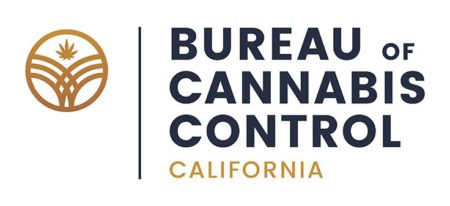[Update at end of article.]
The California Bureau of Cannabis Control (BCC), the Department of Food and Agriculture (CDFA), and the Department of Public Health (CDPH) recently announced the much-anticipated permanent California cannabis regulations under the Medicinal and Adult-Use Cannabis Regulation and Safety Act (MAUCRSA).
The California Office of Administrative Law (OAL), which ensures that the regulations are clear, necessary, legally valid and available to the public, has thirty working days (ending January 16, 2019) to issue a Certificate of Compliance. Many of the changes from the emergency cannabis regulations to the permanent cannabis regulations are more clerical than substantive, while other changes are significant. The Bureau of Cannabis Control has provided the text of the permanent final BCC Cannabis Regulations with the new language underlined and the language to be deleted stricken through. The existing California cannabis emergency regulations remain in effect until the OAL has completed its review.
[Update January 16, 2019 – The OAL has now completed its review and officially approved the final state cannabis regulations issued by the BCC, CDFA, and CDPH – see California Cannabis Regulations for more info.]
A controversial and significant change relates to the boundaries for licensed cannabis delivery businesses. Pursuant to California Business and Professions Code §26200, local jurisdictions are expressly permitted to regulate and/or ban cannabis businesses. However, under California Business and Professions Code §26090(e), a local jurisdiction cannot prevent delivery of cannabis or cannabis products on public roads by a California cannabis licensee acting in compliance with California state laws, as well as local laws that are authorized under the Control, Regulate, and Tax Adult Use of Marijuana Act (AUMA). The proposed permanent cannabis regulations, California Code of Regulations, Title 16, Division 42, § 5416(d) state that “[a] delivery employee may deliver to any jurisdiction within the State of California provided that such delivery is conducted in compliance with all delivery provisions of this division.” (See the final BCC Cannabis Regulations, page 76).
The delivery provisions of the new permanent California cannabis regulations received opposition from local jurisdictions as reflected in the California League of Cities letter in opposition to the cannabis delivery regulations.
Despite opposition from the California League of Cities to the cannabis delivery regulations, the proposed permanent cannabis regulations provide greater clarity and opportunity for success for cannabis delivery businesses.
Under the current California cannabis emergency regulations, cannabis delivery businesses, specifically those without a storefront, face a number of obstacles with the myriad of different regulations among the local jurisdictions. Several jurisdictions, such as the City of Huntington Beach, ban adult-use deliveries completely (see Huntington Beach code cannabis delivery ban). The majority of the cities in San Diego County specifically ban all cannabis deliveries, medical or adult use; however, the County of San Diego is silent on the issue of deliveries while banning all other cannabis businesses (see San Diego County marijuana code). Other counties, such as Merced, have adopted ordinances banning cannabis businesses within their jurisdiction, but permitting delivery of medical cannabis within the County from businesses outside of their jurisdiction (see Merced County cannabis code). A few jurisdictions, such as the City of Oakland, have embraced not only cannabis delivery within their jurisdiction, but permitted cannabis delivery businesses to establish locations within their jurisdiction consistent with State law (see Oakland cannabis code).
Interestingly, the California State Legislature raised the issue of local cannabis delivery with Senate Bill 1302 (Senator Ricardo Lara) considered last legislative session but not adopted (ordered inactive at Senator Lara’s request where it died), which would have specifically prohibited a local government from adopting or enforcing any ordinance that would prohibit a licensee from delivering cannabis within or outside of the jurisdictional boundaries of the local jurisdiction. (See the complete California Cannabis Law Legislative Update.) The California League of Cities, California State Association of Counties, and the California Police Chiefs Association, among others, wrote a May 31, 2018, letter opposing the cannabis delivery law.
Supporters of SB 1302 noted that voters overwhelmingly approved Proposition 64, the Control, Regulate, and Tax Adult Use of Marijuana Act (AUMA), the intent of which was to provide for a regulated market for cannabis, and local bans on cannabis delivery only frustrate that intent by encouraging black market activity and hindering the ability of individuals to use cannabis. Supporters also recognized the harm to the California state cannabis licensing system, and to public safety, caused by local bans on cannabis delivery. (Read more about California state cannabis law at California Cannabis Law.)
**Update: On April 4, 2019, some California local jurisdictions (county/city) filed a lawsuit challenging the BCC California cannabis delivery regulations. On November 17, 2020, a California court dismissed the cannabis delivery lawsuit finding that the matter was not yet ripe for adjudication. It was not, however, the win the cannabis industry was looking for.
Contact us to learn more about California state or local cannabis regulations, cannabis regulatory compliance, and cannabis litigation.

